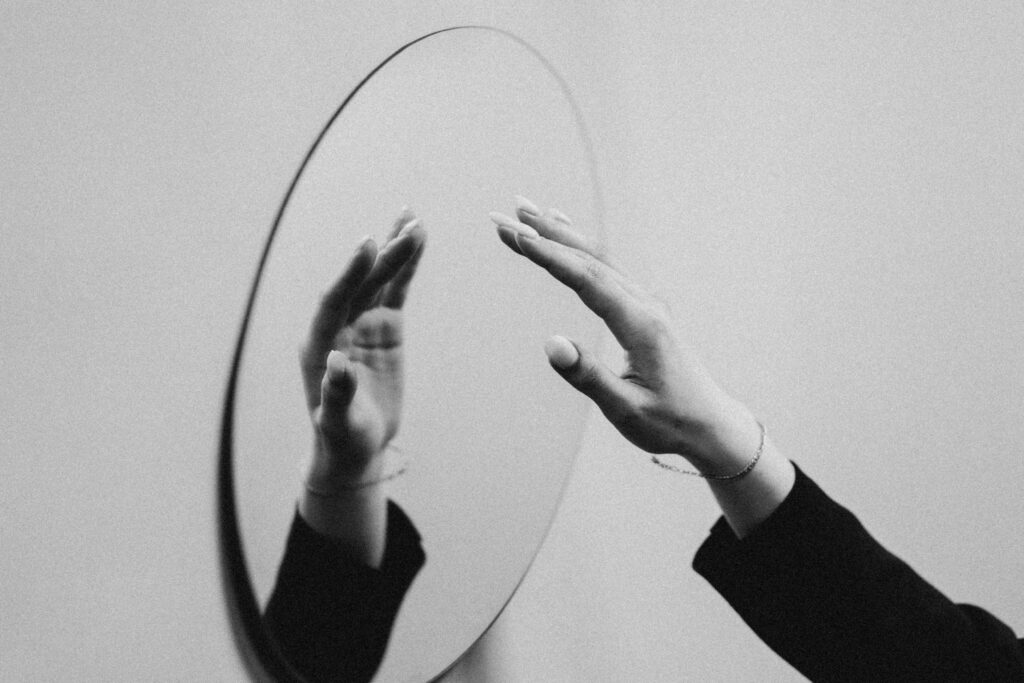Autofiction: Finding Comfort in the Blurred Boundaries of Personal Narratives

When I started writing fiction, it was as if I found a way to manage my floaty nature, to ground myself. At first, I couldn’t pinpoint why sitting alone in my room and delving into my fantasy world seemed so therapeutic. In fact, I questioned if I was enabling my avoidant tendencies. There is a certain rush that comes with creation, whether it be on the page, in a shop, a studio. To make something truly yours, to tell a story, it’s a beautiful thing. But that wasn’t it. It wasn’t making the thing or telling just any story that lifted the weight from my shoulders, that cleared my mind. I was missing a critical piece of my writing for a long time. I wasn’t letting myself look past the page. I was avoiding the why. I wanted to stay in shallow waters, not drift off and get pulled too far away from simple craft.
I shared a story with a friend once, a milestone I was reluctant to reach. It was one where my characters felt so crisp, so clear, so palpable to me. It was then I was faced with the reality of my work.
They met me with a careful, Hm.
Hm?
The main character seems an awful lot like you, no?
This observation took me aback. Not offended or unhappy, just… uncomfortable. I suddenly felt exposed, and vulnerable. Regardless, I brushed it off and laughed. But when I went home that night, I scoured the page and finally saw it too. I saw myself, hiding in the details. That’s not a bad thing though, right? Sure, I might have trickled into my writing, but that is inevitable, isn’t it? Who doesn’t find part of themselves in their work? Still, I tucked the story away, locked it in the vault of works in progress likely never to be seen again. I kept writing, searching for characters, trying to bring them to life, creating a little bubble where I could write, delete, save. But a seed had been planted. Seems like you, huh? I couldn’t shake this, because it was true. And it ran deeper than I initially thought. It wasn’t just me I was putting on the page, disguised by careful writing—often a poor attempt—in fact, everyone in my vicinity was finding a home in my work.
I once heard everyone you dream of is either a part of your life, or you have simply encountered, even if only briefly or in passing. That’s a myth. Your brain is completely capable of creating new faces, new ideas, new stories. So, why did I keep writing my own on the page and masking it as fiction? It was a hard pill to swallow when I realized this, because now my work held meaning, it was a true part of me. I felt the need to protect it. To keep my sanity, I ignored this the best I could. So what? Sure, those close to me could call BS, but to a general audience, my secret was safe. Besides, I finally had my why. Sharing my story was more than healing, it validated my experience by making it real and cementing it in my history. Only the more I wrote, the more I realized it wasn’t just me on the page. It was my mother, my father, my sister, my friends. No matter the story, they found a role, and it mirrored reality no matter how I tried to tweak the narrative. Now it wasn’t just me at risk of exposure. It was everyone who crossed my path. That troubled me.
It was when I took my first creative nonfiction class I was forced to come to terms with the situation. The assignment was simple: write a creative nonfiction essay. It came easy to me. Hell, I’d been doing it all along. Except now I was freed from the shackles of careful words. I wrote in great detail about my absent father, single mother, and distant siblings. It was cathartic. It was authentic. Still, somehow, sharing it left me feeling grimy. I thought back to the first time someone saw me on the page. The vulnerability. How could I share this story? It wasn’t just mine. It didn’t feel consensual. I was assured I wasn’t alone in this. It’s a hurdle nearly every writer will face. It’s inevitable. My professor didn’t tiptoe.
It’s your story. If they are mad, so be it.
Easy enough? Let them be mad. I felt empowered by this momentarily, but it’s easier said than done. It’s different when you get a glimpse of the effect.
My mom was pet-sitting for me, something I wouldn’t typically ask her to do on short notice, but I had a sick bunny and a job, an unfortunate combo. She didn’t bring it up at first, that she had found the essay I wrote. Instead she chatted calmly with me about her day playing veterinarian. Before leaving though, she nodded to the pages on my counter and said, You made me sound kind of pathetic. She didn’t seem offended or upset, but I knew. I knew. All I could say back was, I didn’t mean to. I didn’t see it that way. I didn’t think I wrote her as pathetic. But, the thing is, even though it’s my story just as much as hers, my version lacks her context. It inherently changes her experience, and it did so unexpectedly.
She never brought it up again, and I left the essay alone while I dealt with the dilemma of how to ethically write a shared story.
There is some ambiguity surrounding the ethics of telling another’s story, and the line becomes even blurrier when it’s your story too. Many writers will stand by the decision to share fearlessly. I admire that. I might even envy that. However, at this point in my writing career, as I continue to hone in on my craft, there is some comfort in treading lightly for me. Autofiction is a safe space. I can accept readers connecting dots, finding similarities, and seeing me through the cracks. And I think those who find themselves veiled in my work can too. At least I hope so. Eventually, I’m sure I’ll find more confidence in my voice and more comfort in understanding that I’ll never be able to capture the full picture. There’s a reason I put the words on the page, that I feel compelled to. I don’t want my work to live on my computer and never see another home, never reach an audience. I want to share my story, and I will. But for now, until I can figure out the right way to accomplish that, I want to continue to create a space for myself to focus on my craft without bringing anyone in unwillingly.


